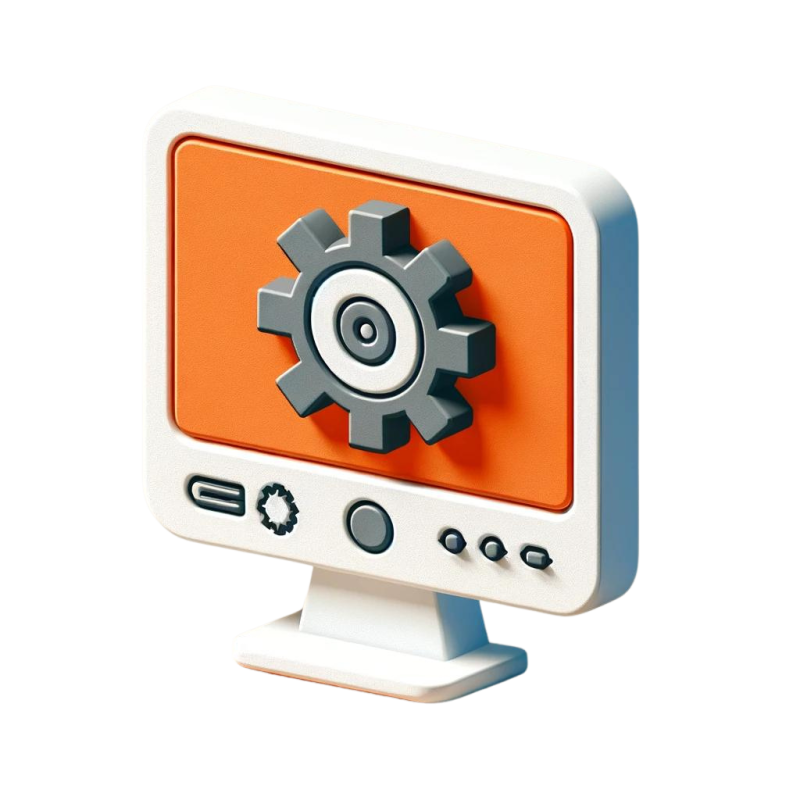Zaufali nam








Low-code is a phrase officially accepted by Forrester research group 2014. Low-code describes programming technique with the use of a small amount of code, for which advanced knowledge of programming languages is not required. As a result, the users of low-code can create processes and applications without support from coding experts.
Low-code Features
The low-code method is used in dedicated platforms. Such platforms are characterised by the following features:
– Visual process modelling
Low-code platforms allow for modelling the business processes, often called ‘workflows’ with the use of graphics, which are representing steps in the process. Such form of process visualisation is much simpler than writing several pages of code. Additionally, the visual presentation of the process is more understandable for third parties.
– Integration with databases
Low-code platforms transfer information by relational databases and SQL requests. Moreover, the data from external software interfaces are automatically sent to the low-code platform.
– More efficient project management
Features which are offered by low-code platforms decrease the risk of problems appearing while creating, improving and modifying processes. Developed platforms also offer many intuitive tools which make process management and process scaling easier.
The low-code market is constantly growing in its popularity. It is characterised by increased turnover, development and growing interest among businesses. In 2017 the research group Forrester pointed out 67 main low-code system suppliers. However, the number of companies offering low-code solutions is higher, but they are not enough advanced to be placed on that list.
The popularity of low-code solutions
Why low-code is becoming more popular?
- The digitalisation of the economy requires companies to be flexible and ready for growth. Low-code is a developing trend, which brings a lot of benefits to businesses.
- In order to remain competitive, processes need to be created quickly and easily fitted into changing business conditions. Thanks to its intuitiveness, low-code allows for easy modelling of new processes and editing already existing ones
- On the market, there are not enough coding specialists, who can easily program and edit process from scratch.
According to Forrester Research (2019) around 20% from 2,438 European and American developers, who took part in the survey, said that they are planning to implement a low-code platform in the company they work at. Another 20% already uses such a platform. The other 60% remains sceptical.
Why? Perhaps, they have not been presented all of the advantages of low-code. We will try to change it.
Challenges for businesses
Modern enterprises face a constantly growing number of challenges. The companies are expected to:
- Be ready to change their business model, depending on the market climate
- Create products and services, which are compatible with the newest technologies
- Quickly respond to changing customer needs
- Make processes more effective and employee-friendly
- Implement newly created processes.
- Have structured access to data and documents
Low-code platforms have the biggest influence on the functioning of SEM.
In companies, where a lot of new processes are created, or often modify existing processes to increase their effectivity. Also, companies, in which there is not enough management, implementation of new processes take too much time, and used IT solutions are not directly connected. Low code improves the teamwork, integrates processes and improves the speed of completing the tasks.
How to choose a low-code platform?
When choosing a workflow platform, you should answer several questions:
- Does the platform we are interested in, have all of the features and integration possibilities, that you find necessary?
- Does the platform supplier offer support for its clients after system implementation? Does the supplier develop the platform?
- Is it possible to create all required applications and processes within the platform? Is the platform flexible and will it be able to develop together with the development of the client’s company?
Low-code should not only meet the current requirements of the company but also be ready for any modifications that may be required during the business growth. Low-code platforms should be universal and perceived as useful in every industry.
JobRouter as a low-code platform
JobRouter is a workflow system that exists since 2003. Through its development, it has been also named a low-code platform. JobRouter allows the business to optimise its workflow, effectively manage documents and data, and automate internal and external processes.
JobRouter is divided into modules, when combined, they create a working environment which is suited for each industry and company’s requirements. JobRouter functions within the modules, are also tailored to the individual needs of the company and can be extended with additional features at any time. Programming ‘Low-code’ within JobRouter is simple, intuitive and above all, flexible.
Advantages of Low-code platform JobRouter
• Easy-to-learn process creation and editing
Modelling processes with the help of an intuitive interface is very simple. Additionally, in JobRouter it is possible to save process as templates that can be used and modified in the future.
• Time saving
No need to write the code, or even correct it and test the application later, saves an employee’s time.
• No need for advanced coding skills
Each employee can be trained in creating and editing processes. As a result, employees do not have to ask the IT developer to find time to make changes to the processes.
• Lowering costs
Programmers are a high expense for the company. Their workload can be reduced by introducing low-code solutions.
Error: Contact form not found.



